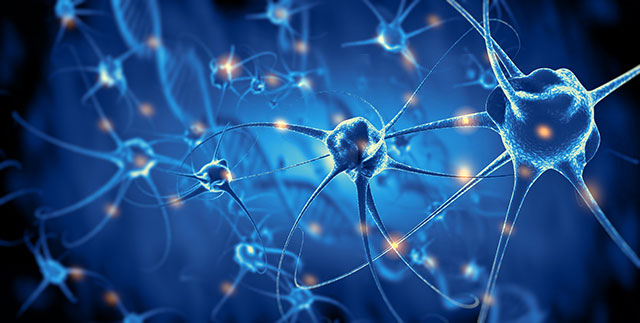Should diabetics fast?
01/04/2019 / By Zoey Sky

Following a healthy diet can significantly improve your overall health. But can fasting help people with autoimmune diseases like diabetes manage their symptoms?
At the 2018 Institute for Functional Medicine (IFM) Annual International Conference in Hollywood, Florida, Dr. Sebastian Brandhorst, said that “[nutrition] and health go hand-in-hand.”
More studies are confirming that fasting and fasting-mimicking diets can promote stem cell activation and support cancer treatment. Data also suggests that fasting can benefit individuals with autoimmune diseases.
The health benefits of fasting
A 2016 study, which was published in the Journal of Neuroscience, detailed the effects of Ramadan fasting on fatigue and quality of life in individuals diagnosed with multiple sclerosis (MS).
In 2014, the 218 study participants completed a 14-hour fasting period. Researchers measured 20 health factors before and after fasting. Out of all the participants with relapsing-remitting MS, 150 of whom were female, the majority reported improvements in various factors, such as cognitive wellbeing, emotional wellbeing, energy, health perception, and physical health.
Dr. Brandhorst also discussed an example involving mice that received chemotherapy treatment. The mice that fasted before treatment were active and energetic, compared to the mice that didn’t fast, which were cold to the touch, lethargic, and sick. Fasting also helped sensitize cancer cells in mice. Researchers also observed that patients who fasted had less severe symptoms after receiving chemotherapy.
In a separate 2016 clinical trial, which was published in BMC Cancer, fasting for 72 hours was linked to reduced DNA damage and the reversal of lymphocytopenia in individuals that received receiving gemcitabine/cisplatin (GC) and carboplatin/Taxol chemotherapy.
Gemcitabine and cisplatin chemotherapy is a combination of chemotherapy drugs that are used to treat bladder and non-small cell lung cancer. GC is also given to patients with certain types of liver and bile duct cancer. On the other hand, Paclitaxel (Taxol) and carboplatin is a combination treatment used to treat cervical, lung, ovarian, and womb cancer. It can also be used to treat other types of cancer.
Dr. Brandhorst explained that nutrient sensing pathways present a target that can delay the onset of aging-related diseases. Data also suggests that starved animals can live healthier and longer. Growth hormone receptor deficiency is linked to a significant reduction in pro-aging signaling, cancer, and diabetes in humans. (Related: Australian study confirms the therapeutic benefits of intermittent fasting for diabetic patients.)
This means that essential dietary interventions must be periodic and short. They should also align with good anti-aging practices. The interventions shouldn’t require major lifestyle changes so they can be integrated into social life.
Dr. Brandhorst advised that adjusting these interventions can positively affect the health of people with chronic diseases. However, while the benefits have been known for more than 100 years, it isn’t widely applied in medicine.
What is the fasting-mimicking diet?
Using the findings of research that confirmed the connection between fasting and chronic disease, Dr. Brandhorst et al. formulated the fasting-mimicking diet, a periodic, short-term dietary intervention.
The fasting-mimicking diet is high in polyunsaturated fatty acids, low protein, low carbohydrates, and vegetable-based. Dr. Brandhorst explained that this diet could reduce fasting glucose and lower IGF-1. At the same time, the diet can increase ketone bodies IGFBP-1. The fasting-mimicking diet can help individuals manage chronic diseases like diabetes.
The diet also offers other benefits such as:
- Improving motor coordination and memory
- Promoting adult neurogenesis
- Promoting beta-cell regeneration
- Promoting gene expression in pancreatic islets (e.g., those associated with embryonic and fetal development)
- Reversing beta-cell failure in T2D
According to a 2016 study published in Cell Reports, a fasting-mimicking diet designed for individuals with autoimmune disease can help minimize immune cell infiltration and demyelination. Additionally, the diet can help prevent experimental autoimmune encephalomyelitis (EAE).
The clinical trial for the fasting-mimicking diet was supplied by L-Nutra, Inc. The program, which was made to promote fasting-like effects while providing micronutrients, featured bars, drinks, herbal teas, plant-based soups, snacks, supplements, and vitamins.
The results of the trial, which were published in the journal Science Translational Medicine, showed that after only three cycles of a fasting-mimicking diet, the volunteers reported a decrease in:
- Body mass index
- Body weight
- Total body fat
- Trunk fat
- Waist circumference
The researchers also observed a decrease in the blood pressure, glucose, IGF-1, triglycerides, and total cholesterol of the participants. The volunteers also experienced an increase in lean body mass. The study suggests that diet protocol can minimize metabolic markers in at-risk subjects. The clinical trial also showed that the diet doesn’t have negative side effects and that it can help treat autoimmune disease, particularly MS.
Dr. Brandhorst said that while research is ongoing, periodic fasting-mimicking diets can boost regeneration markets in humans. The diet can also help decrease risk factors and biomarkers for conditions such as diabetes and cardiovascular disease.
In mice subjects, the protocol had confirmed benefits such as multi-system regeneration. The researchers also observed decreased adiposity, cancer, and inflammatory diseases in the subjects. The mice also had increased immune and cognitive rejuvenation, along with a longer lifespan.
Dr. Brandhorst concluded that the dietary protocol is a promising one and that larger clinical trials can help determine the diet’s effect on larger chronic and autoimmune diseases in humans.
You can read more articles about fasting and other natural ways to manage diabetes at DiabetesScienceNews.com.
Sources include:
Submit a correction >>
Tagged Under:
autoimmune disease, chronic disease, diabetes, diabetics, dietary intervention, fasting, prevent diabetes, weight loss
This article may contain statements that reflect the opinion of the author
RECENT NEWS & ARTICLES
COPYRIGHT © 2017 PREVENTDIABETES.NEWS
All content posted on this site is protected under Free Speech. PreventDiabetes.news is not responsible for content written by contributing authors. The information on this site is provided for educational and entertainment purposes only. It is not intended as a substitute for professional advice of any kind. PreventDiabetes.news assumes no responsibility for the use or misuse of this material. All trademarks, registered trademarks and service marks mentioned on this site are the property of their respective owners.





















